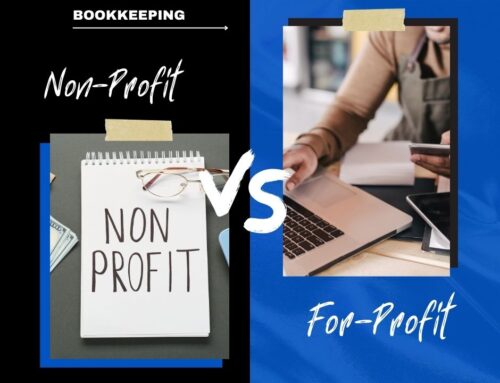In the bustling heart of Boston and its surrounding communities, countless nonprofit organizations tirelessly dedicate themselves to serving diverse missions.
Their impact is undeniable, from fostering artistic expression to supporting vital social services.
But behind the scenes, maintaining the financial health of a nonprofit requires a unique set of skills and strategies distinct from traditional business and nonprofit accounting best practices alone.
This guide explores eight best practices for nonprofit bookkeeping in Boston and surrounding areas, empowering organizations to thrive through effective financial management.
1. Navigating the Landscape of Standardized Accounting Principles:
Nonprofit organizations must adhere to the same generally accepted accounting principles (GAAP) as their for-profit counterparts, ensuring consistency and transparency in financial reporting. However, interpreting these principles through the lens of a nonprofit’s mission and funding sources requires specific expertise.
For instance, unlike for-profit accounting, nonprofits often utilize a specialized fund accounting system that tracks restricted and unrestricted funds, ensuring proper accountability and adherence to donor intent. Understanding and implementing this system is crucial for maintaining accurate financial records.
2. Going Beyond the Cash: Tracking Diverse Contributions:
Focusing solely on monetary donations and fundraising expenses is easy, but overlooking the diverse forms of support nonprofits can paint an incomplete picture of their financial resources, program expenses, financial position, and net assets. Non-cash contributions, such as in-kind donations of goods or services, matching grants, and volunteer hours, are vital to understanding the organization’s true financial standing and producing accurate financial statements.
Implementing systems to track and record these non-cash contributions effectively is essential. This can involve utilizing software that allows categorizing and valuing in-kind donations, tracking volunteer hours, and documenting matching grant agreements.

3. Building a Fortress: Implementing Internal Controls and Policies:
Protecting an organization’s finances from fraud and mismanagement is paramount. Establishing strong internal controls and policies is a vital safeguard for nonprofit accounting. These measures can include:
4. Empowering Efficiency: Leveraging Nonprofit Accounting Software:
Technology is vital in streamlining financial management processes in today’s digital age. Investing in specialized accounting software designed specifically for nonprofits can significantly enhance efficiency and accuracy.
These software solutions offer features tailored to the unique needs of nonprofits over for-profit businesses, including:
Popular options for nonprofit accounting software include QuickBooks, Aplos, Nonprofit Plus, Xero, and Sage Intacct. Additionally, many software vendors offer discounts to qualifying nonprofits.
5. Sharing the Responsibility: Delegating Financial Tasks:
While maintaining a centralized financial oversight is essential, assigning specific responsibilities to different individuals within the organization can reduce the risk of fraud and foster accountability.
Consider delegating tasks such as:

6. Charting the Course: Creating a Realistic Operating Budget:
A well-developed operating budget is the roadmap for a nonprofit’s financial journey. This budget should be meticulously crafted to reflect past performance, anticipated future expenses, and strategic goals. Regularly review and adjust the budget as needed to adapt to changing circumstances.
While preparing the budget, consider the following:
7. Navigating the Maze: Understanding Nonprofit Tax Regulations:
Like for-profit businesses, nonprofits operate within a specific legal and tax framework. Familiarizing yourself with the complex world of nonprofit tax regulations is critical for maintaining compliance and avoiding penalties.
Key considerations include:
8. Seeking Expertise: Partnering with Experienced Nonprofit Bookkeeping Services:
Outsourcing bookkeeping tasks to experienced professionals can be a wise investment for many nonprofits. Partnering with a firm specializing in nonprofit accounting offers several benefits:
How Can Navitance Help Your Boston Non-Profit?
By adhering to these best practices and leveraging available resources, Boston-area nonprofits can navigate the complexities of nonprofit financial statements and ensure long-term sustainability.
Investing in accurate and compliant bookkeeping practices fosters trust and transparency, strengthening relationships with donors, stakeholders, and the community.
Remember, effective financial management lies at the heart of achieving a nonprofit’s mission and positively impacting the world.
Ready to enhance your nonprofit’s financial management? Contact Navitance at 801-613-3746 or [email protected] for expert bookkeeping and accounting services or to schedule a consultation online. Discover how our specialized nonprofit services can empower your mission in Boston or wherever you are.
Get in Touch with Navitance
Please complete the following form and we’ll be in touch shortly.





